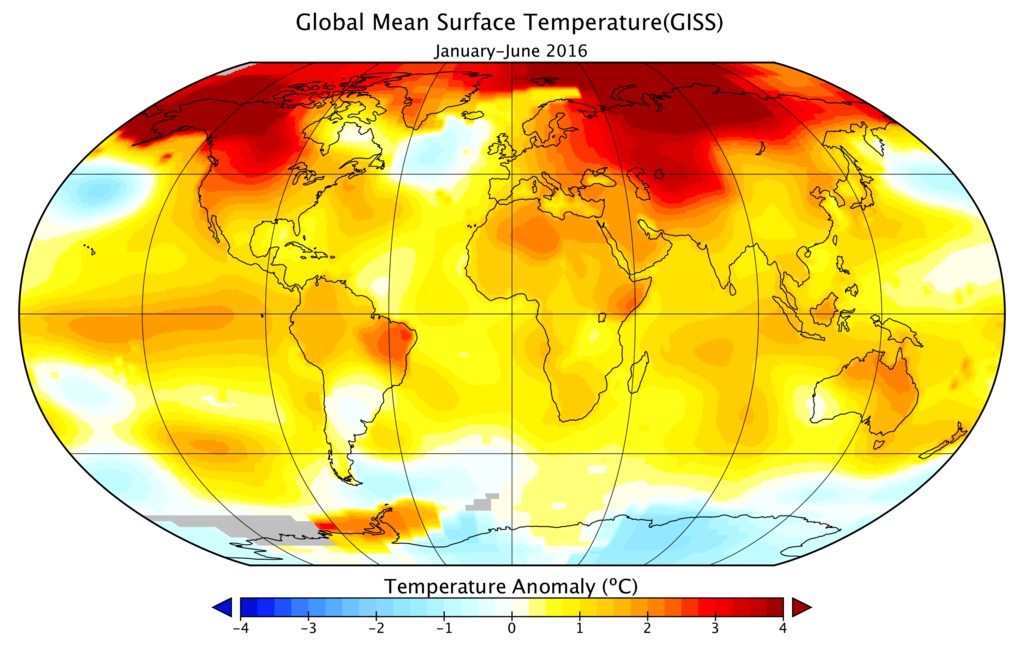NASA Releases Global Temperatures for First Half Of 2016
B-roll that goes along with the live shot
The last two years broke former global temperature records, so all eyes are on 2016. Compared to the 135-year-old modern temperature record – the first five months of 2016 were the warmest ever measured for each respective month.
On Tuesday July 19, NASA released its updated global temperature analysis for 2016. The data provides strong insights regarding long-term climate change.
With striking evidence of long-term climate change, NASA scientists are conducting major field research campaigns – flying over melting Arctic sea ice and taking measurements on the ground – to better understand the processes behind and impacts of a warming planet. Our planet is changing, and NASA is on it.
*** To Book a Window ***Contact Clare Skelly – clare.a.skelly@nasa.gov / (301) 286-4994
Suggested questions:
1. NASA just released new temperature data, what can you tell us about the first half of 2016?
2. What are the impacts of this heat?
3. So NASA scientists are in the Arctic right now, how are they observing these changes?
4. How does this science help us plan for the future?
5. Where can we learn more?
Click for MEDIA RELEASE
Click for Arctic sea ice latest.
Click for more NASA Earth Science.
More on Twitter #EarthRightNow
New video from NASA's Operation IceBridge mission. Operation IceBridge is an airborne survey of polar ice and the mission just completed its first flights studying the aquamarine pools of melt water on the ice surface that may be accelerating the overall sea ice retreat.
During this summer campaign, IceBridge will map the extent, frequency and depth of melt ponds like these to help scientists forecast the Arctic sea ice yearly minimum extent in September.
Canned interview with Dr. Compton Tucker
For More Information
See nasa.gov/earth
Credits
Please give credit for this item to:
NASA's Goddard Space Flight Center
-
Producers
- Michelle Handleman (USRA)
- Clare Skelly (NASA/GSFC)
- Matthew R. Radcliff (USRA)
-
Editor
- Michael Randazzo (Advocates in Manpower Management, Inc.)
Release date
This page was originally published on Monday, July 18, 2016.
This page was last updated on Tuesday, November 14, 2023 at 12:19 AM EST.
